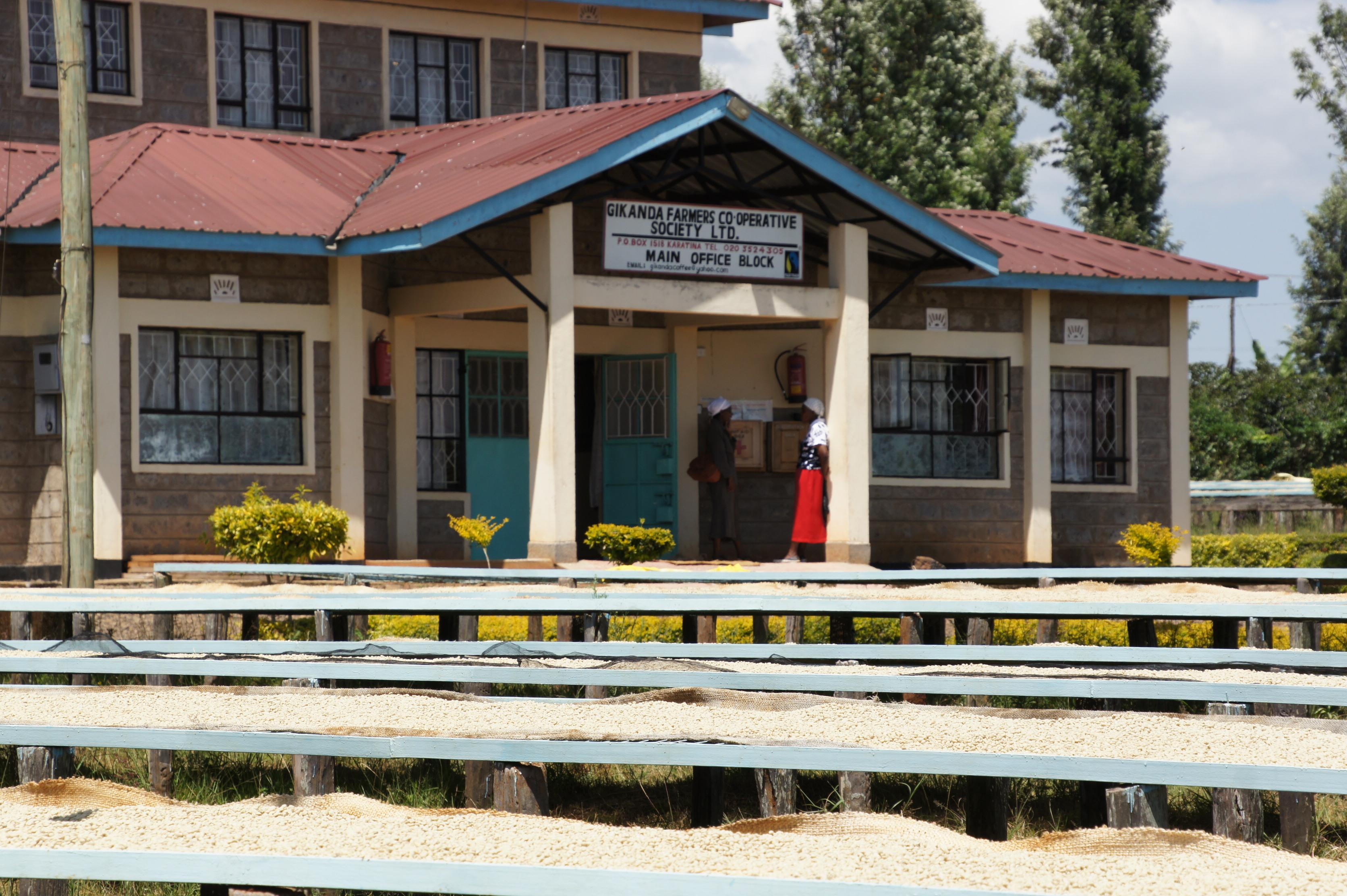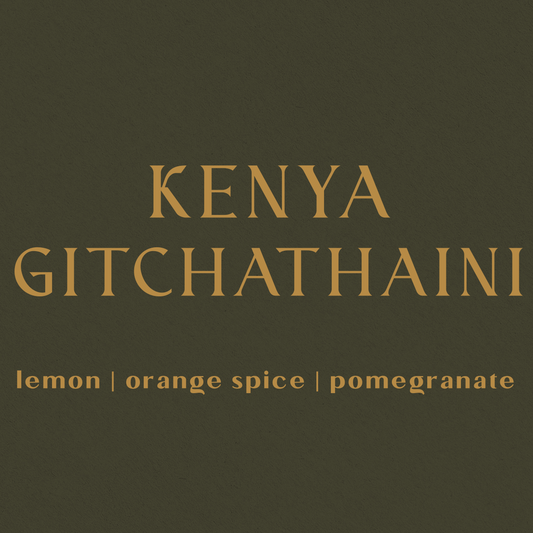
Gikanda Farmers’ Cooperative Society
Coffee Production at Gikanda Farmers’ Cooperative Society
1. Historical Background
The Gikanda Farmers’ Cooperative Society is a small but prominent coffee cooperative located in the heart of Nyeri County, Kenya. The name “Gikanda” is a portmanteau of the three main areas it serves: Gichatha-ini, Kangema, and Kandara. It was established to support smallholder farmers in these areas by pooling resources, centralizing processing, and improving access to markets.
Since its founding in the late 20th century, Gikanda FCS has earned a reputation for producing exceptional quality coffees. It is now known internationally for its focus on traditional Kenyan coffee varieties and meticulous washed processing methods. The society typically serves over 1,000 active members, each cultivating a small plot of coffee trees.
2. Growth and Regional Development
The Gikanda FCS operates multiple washing stations (commonly referred to as "factories" in Kenya), the most notable being:
Gichatha-ini Factory (arguably the most well-known)
Kangocho Factory
Ndaro-ini Factory
These factories sit at elevations between 1,700–1,900 meters above sea level, in the fertile, red volcanic soils of Nyeri. This region is part of Kenya's central highlands, with abundant rainfall and cool temperatures—ideal conditions for slow cherry development, high bean density, and complex flavor formation.
Farmers in this area typically grow SL-28 and SL-34 cultivars, with some Ruiru 11 and Batian as newer introductions. Coffee is cultivated under shade alongside other subsistence crops like maize, banana, and macadamia, creating a biodiverse farming environment.
3. Present-Day Production and Processing Practices
Gikanda factories adhere to classic Kenyan fully washed protocols:
Delivery & Sorting – Only ripe, red cherries are accepted. Sorting happens first at the farm, and again at the factory.
Pulping – Mechanical pulpers remove the outer skin.
Fermentation – Beans undergo dry fermentation for 12–24 hours depending on temperature.
Washing – Beans are washed in channels, separated by density.
Soaking – Post-washing, parchment is soaked for up to 24 more hours to develop clarity.
Drying – Coffee is sun-dried on raised beds for 12–21 days depending on weather.
Farmers receive agronomic support, fertilizer access, and training through the cooperative. In return, the cooperative maintains high-quality control standards and sells their coffee through the Nairobi Coffee Exchange or direct export channels with traceability.
4. Market Dynamics and Quality Profile
Coffees from Gikanda’s factories—especially Gichatha-ini and Kangocho—are coveted in the specialty market and frequently featured by top roasters around the world.
Flavor notes from Gikanda coffees often include:
Red currant, cranberry, and raspberry
Pink grapefruit and blood orange
Floral top notes of violet or hibiscus
Bright acidity with tea-like structure
Clean sugarcane or honey sweetness
These coffees regularly receive cup scores above 87–89 points, with AA and AB grades especially prized.
Gikanda’s small size allows for meticulous lot separation, enabling micro-lot selections and experimental processes on a limited basis. Their transparency and consistency have led to long-term partnerships with importers and roasters in the US, Europe, and Asia.
5. Outlook
The future for Gikanda FCS is promising but challenged. Climate variability, aging tree stock, and economic pressure on smallholders are real concerns. However, the cooperative’s strong quality reputation, access to international buyers, and commitment to farmer education and environmental stewardship position it as a resilient force in Kenya’s specialty coffee landscape.
Investments in agroforestry, youth training, and processing innovation (like extended fermentations or anaerobic trials) are beginning to surface in the society’s roadmap, signaling a new era of quality and sustainability.
Shop Coffees from Gikanda Farmers’ Cooperative Society
-
 Sold out
Sold outKenya Gichathaini
Regular price $26.00 USDRegular priceUnit price / per



